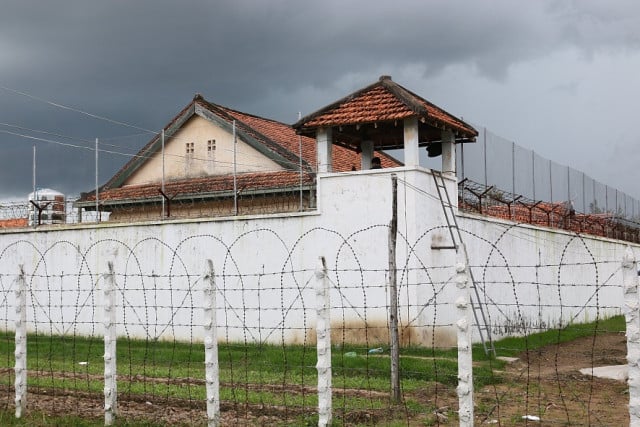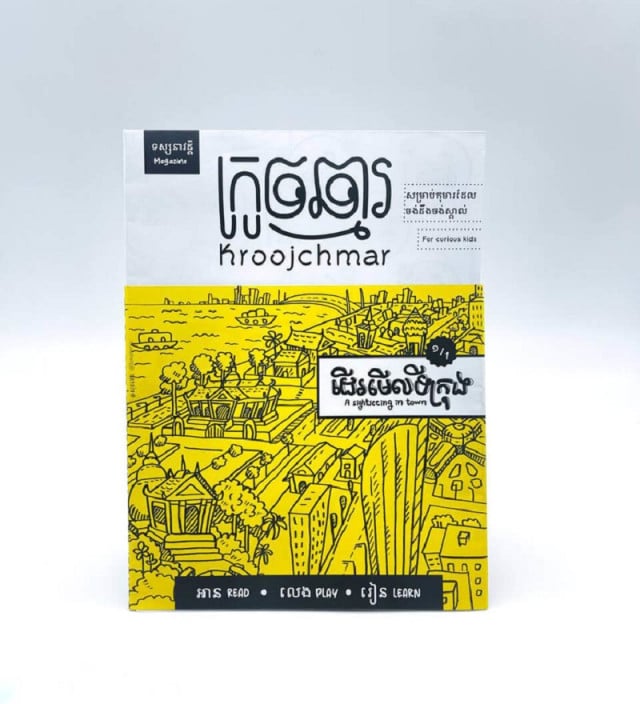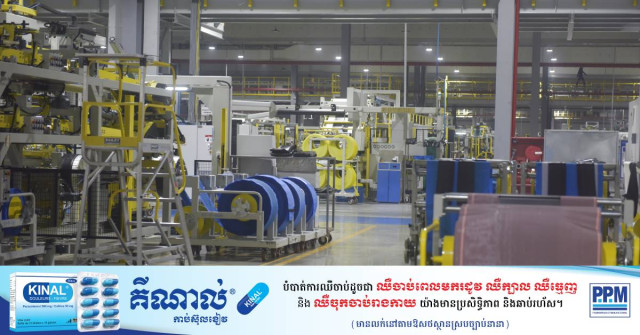Cambodia’s Prisons at “Tipping Point” Over COVID-19 Concerns

- Gerald Flynn
- December 9, 2020 10:06 AM
Deputy-Director of the Prisons Department Nouth Savna said that just 20 of the estimated 40,000 inmates in Cambodia’s prisons system have been tested for COVID-19, despite infections spreading through the Ministry of Interior.
PHNOM PENH--Some 20 prisoners in Siem Reap Provincial Prison are the only inmates in all of Cambodia to have been tested for COVID-19, according to Nouth Savna, deputy-director of the General Department of Prisons.
“All 20 were tested three days ago [on Dec. 6] and have since tested negative for COVID-19,” Savna said in a telephone interview.
The Nov. 28 community outbreak has been linked to the wife of Prison Department Director Chhem Savuth, with the infection spreading throughout the Prison Department and other branches of the Interior Ministry leading to the ministry’s temporary closure. This included Savuth’s daughter, who works in logistics at Siem Reap Provincial Prison and tested positive in the wake of the Nov. 28 outbreak.
However, despite the contact that Savuth, his family and his subordinates have had with prisoners, just 20 inmates have been tested for COVID-19, but Deputy-Director Savna said that all suspected cases are reported to the Cambodian Center for Disease Control, the Ministry of Health and the local authorities.
“We have some prisoners who are coughing and who have slight fevers, but this is just the change of the weather—it happens every year in flu season in Cambodia,” said Savna, who added that these inmates were not being tested for COVID-19.
“If their temperature gets too high, then we will contact local health authorities,” he added.
This comes after a Dec. 9 joint statement from Amnesty International, Human Rights Watch and local human rights group LICADHO that called for the urgent protection of prisoners in Cambodia. While some 250 prison officials—along an unknown number of NGO staff who work with the Prison Department—have been tested for COVID-19, the prisoners themselves have largely been left to fend for themselves.
“The transmission of COVID-19 in Cambodia’s poorly equipped and extremely overcrowded prisons could be devastating,” the statement read. “In several prisons, prisoners often have less than one square meter of personal space per prison cell and access to clean water is severely limited. This makes implementing COVID-19 safety measures such as physical distancing and frequent hand washing almost impossible.”
Overcrowding in prisons has been well-documented—the nearly 40,000 prisoners occupy a prison system that Amnesty International estimated to be capable of holding 26,593. Since March 2020, numerous rights groups—both international and local—have been sounding the alarm over prisons and have called upon the authorities to speed up trials for the 17,200 or so Cambodians who are behind bars in pre-trial detention.
“So far, almost seven months later, the authorities have failed to address prison overcrowding, test prisoners potentially exposed to COVID-19 or provide prisoners with sufficient resources required to practice safe hygiene,” wrote Amnesty, Human Rights Watch and LICADHO. “This could result in an unnecessary and preventable major public health and human rights crisis.”
While Savna said that the General Department of Prisons has been in talks with the UN to assess the viability of mass testing throughout the 28 prison facilities in Cambodia, no concrete plan had yet been established.
“I have met with Pauline Tamesis, the UN Resident Coordinator in Cambodia, to discuss increasing the number of tests done in prisons and even getting everyone in prisons tested,” explained Savna. “But we’re waiting for her to see whether this would be done through the Ministry of Health or through the prison facilities.”
Tamesis did not immediately respond to requests for comments on Dec. 9, but the joint statement issued today calls for more than just testing among prisoners.
The three NGOs called on the Cambodian government to implement effective health and hygiene facilities within prisons, as well as reducing overcrowding by granting early, temporary or conditional release to non-violent, high-risk prisoners.
For more than five years, LICADHO has called for wide-ranging improvements to be made to Cambodia’s squalid prison systems, yet for five years little has changed for the better.
In fact, the weaponization of Cambodia’s judiciary, along with the failed “war on drugs” campaign, has led to even more dramatic overcrowding. The ongoing crackdown against supporters of the former opposition party, activists, journalists, environmentalists and artists critical of the government has shown authorities’ disdain for heeding policy recommendations from a human rights perspective, yet the overcrowding in prisons poses a public health threat if left unaddressed.
The World Health Organization (WHO), in March 2020, published guidelines on preparedness, prevention and control of COVID-19 in prisons which warned that prison staff may become infection vectors for large, vulnerable populations of inmates.
Reiterating that the health of prisoners remains the responsibility of the state, the WHO urged governments around the world to consider releasing inmates who were in pre-trial detention—particularly in the event of community outbreaks and locally transmitted cases of COVID-19.
“Efforts to control COVID-19 in the community are likely to fail if strong infection prevention and control (IPC) measures, adequate testing, treatment and care are not carried out in prisons and other places of detention as well,” the WHO wrote.
Dr. Li Ailan, the WHO’s country representative in Cambodia, did not immediately respond to questions surrounding the lack of testing being done in prisons.
Despite the lack of testing and lack of medical investigations carried out in the cases of prisoners with runny noses, coughs and fevers, Savna said that contingency plans were in place should an outbreak occur behind bars.
“Of course we have various strategies laid out from a security and public health point of view in regards to a contingency plan, but this is a tipping point,” he said. “Even though many Prison Department officials are in quarantine right now, we’re keeping a close eye on the situation.”















